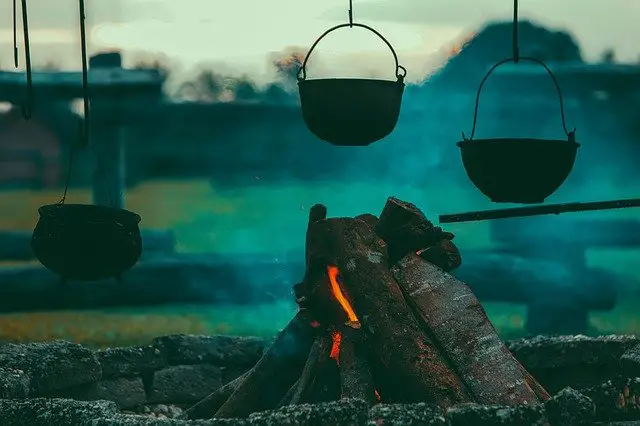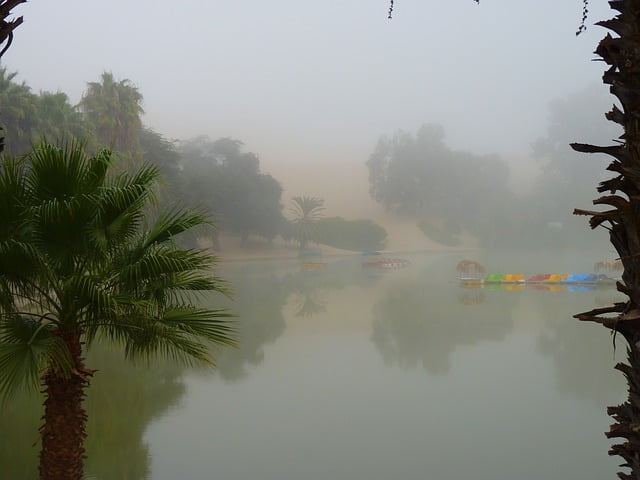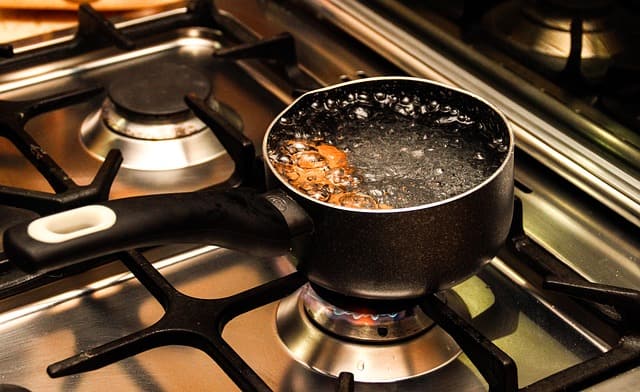♨️ Evaporation vs Boiling:
13 Differences and Similarities
written by Stanley Udegbunam || Dec 17, 2020

AFRILCATE
OVERVIEW OF EVAPORATION AND BOILING
Evaporation and boiling are two types of vaporization.
Since the beginning of man, there is always this subtle confusion between boiling and evaporation.
These days, they are used interchangeably which isn’t right.
In as much as they are both types of vaporization, a clear difference still exists between both terms.
Evaporation is a natural silent process that occurs when a liquid is exposed to an unsaturated gaseous medium while boiling is a liquid to the gaseous phase transition that is induced by external heat.
Let’s take a look at the major differences between these vaporization types in a tabular view.
DIFFERENCE BETWEEN EVAPORATION AND BOILING
EVAPORATION | BOILING |
|
|---|---|---|
| 1. | It’s the phase change from liquid to gas below the boiling temperature at a given pressure. | It’s the phase change from liquid to gas at the boiling point of the liquid. |
| 2. | Evaporation occurs only at the surface of the liquid. | It is a bulk phenomenon. It occurs throughout the volume of the liquid. |
| 3. | It is a natural process. | It is often induced. |
| 4. | Occurs at all temperature. | Occurs at a definite temperature (boiling temperature) at particular pressure. |
| 5. | The energy required is often supplied by the surrounding atmosphere and its own internal energy. | External source of energy is needed for boiling to occur. |
| 6. | Bubbles do not form in evaporation. | Bubble formation is visible. |
| 7. | Evaporation takes place silently. | Because of the continuous bubble formation and collapse, boiling is a noisy process. |
| 8. | As evaporation occurs, the temperature of the liquid decreases gradually. | During boiling, the temperature of the liquid remains constant. |
| 9. | Evaporation is a very slow vaporization process. | Boiling is a rapid process. |
EVAPORATION | BOILING |
|
|---|---|---|
| 1. | It’s the phase change from liquid to gas below the boiling temperature at a given pressure. | It’s the phase change from liquid to gas at the boiling point of the liquid. |
| 2. | Evaporation occurs only at the surface of the liquid. | It is a bulk phenomenon. It occurs throughout the volume of the liquid. |
| 3. | It is a natural process. | It is often induced. |
| 4. | Occurs at all temperature. | Occurs at a definite temperature (boiling temperature) at particular pressure. |
| 5. | The energy required is often supplied by the surrounding atmosphere and its own internal energy. | External source of energy is needed for boiling to occur. |
| 6. | Bubbles do not form in evaporation. | Bubble formation is visible. |
| 7. | Evaporation takes place silently. | Because of the continuous bubble formation and collapse, boiling is a noisy process. |
| 8. | As evaporation occurs, the temperature of the liquid decreases gradually. | During boiling, the temperature of the liquid remains constant. |
| 9. | Evaporation is a very slow vaporization process. | Boiling is a rapid process. |
SIMILARITIES BETWEEN EVAPORATION AND BOILING
Despite the numerous differences, we can still point out a few similarities.
The similarities between evaporation and boiling include:
- Both cause phase transition from liquid to vapor.
- They don’t alter the chemical composition of the liquid so they are both physical changes.
- Both require energy. Usually thermal energy, but other forms of energy can also be used in order to increase the kinetic energy of the molecules, thus making them evaporate or boil.
- Lastly, both depend on one or more external conditions like surrounding air pressure, humidity and temperature of air or temperature of the liquid.

evaporation – a surface phenomenom

boiling – throughout the liquid volume (at b.point)
SUMMARY (EVAPORATION VS BOILING)
There is obviously a clear difference between evaporation and boiling.
Even if you forget the majority of the differences, never forget that:
Evaporation occurs only at the surface of the liquid while boiling occurs throughout the volume of the liquid.

